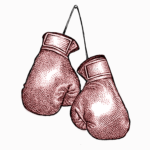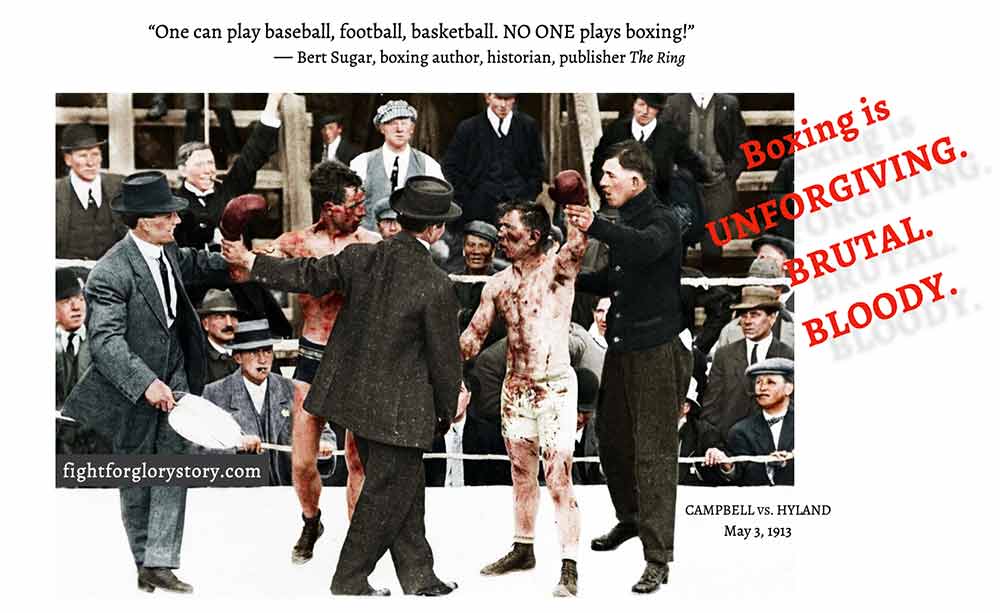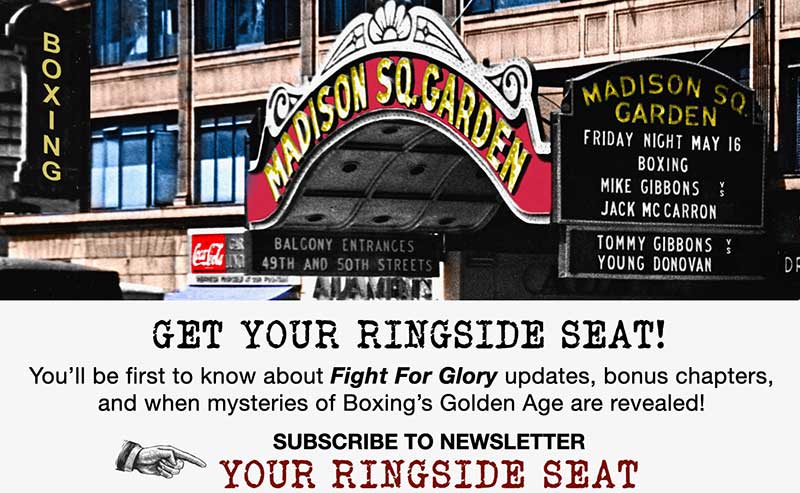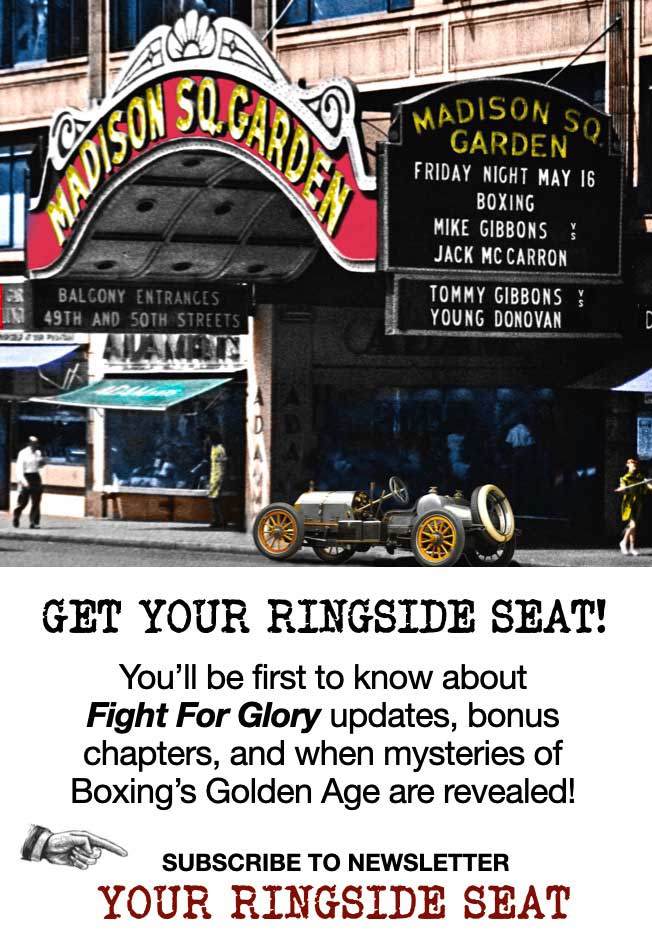"One plays baseball, football, basketball.
NO ONE plays boxing."- Bert Sugar, historian, publisher The Ring
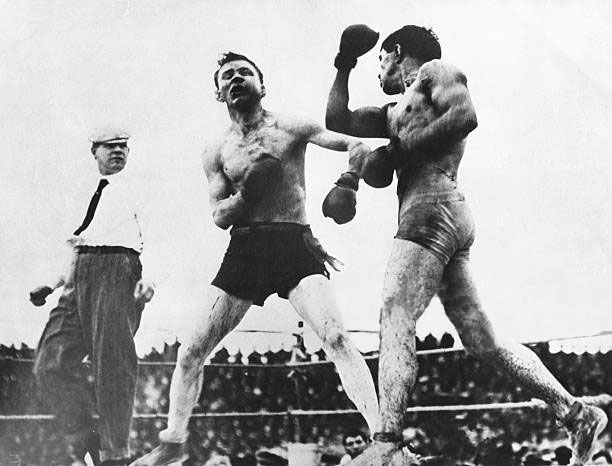
“When an underprivileged boxer succeeds against overwhelming odds and insurmountable obstacles, at enormous personal costs, the hopes of all Americans are buoyed,” writes Jeffrey T. Sammons in Beyond the Ring.
“In this role, boxers become integral elements in a belief system that thrives on the willingness of an overwhelming majority of its faithful to dream the impossible – that success is there for the striving.”
Sammons continues: “(Boxing heroes are) the embodiment of the American Dream, in which the lowliest of individuals rise to the top by their own initiative and perseverance. The elusiveness of that dream is immaterial. The meaning of the dream is in its acceptance — not its fulfillment.”
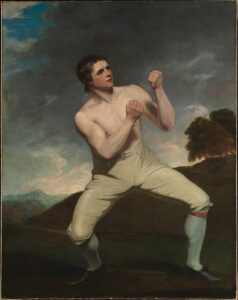
In America, however, early boxing was illegal in most states and territories, an underground athletic contest for the underclass, a peoples’ sport played out in the woods, on barges, in barns and saloons, out of polite society’s line of vision.
Getting caught could cost a man a thousand-bucks and a year in jail.
“From its earliest appearance in America,” writes Sammons, “prizefighting was a taboo sport.”
For a time, they called boxing The Devil’s Opera.
Boxing is insurgence. It is rebellion. It is the distillation of the whole wide world’s chaos into two corners, a squared circle, cordoned by ropes, governed by a rule book, with only a hero or a villain to cheer or hiss.
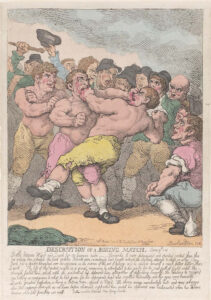
etching, Met. Museum of Art, NY
“Boxing did not just reflect the bloodiness of life. Rather it helped shape violence into art, bringing order and meaning,” Prestage writes in Celtic Fists. “At its best, the ring rendered mayhem rule-bound instead of anarchic, voluntary rather than random… It taught men to face danger with courage, to be impervious to pain, and to return violence rather than to passively accept it.
”We fight over women, over insult and folly, over property, skin color, and turf, over nothing more than being told you will never have what you want.
“Hope on, hope ever – that is (the boxer’s) slogan,” writes British sportswriter Trevor C. Wignall. “It is the hope that springs eternal that keeps them steadfast to an occupation that is cruelty personified.”
Except when it does not. Sometimes, no matter how mannered the battle, the outcome is savage, as anyone who knows anything about pugilism will concede.
If any sport has made hymn of luck, it is boxing, the good luck prevailing only when the gods decide it weaves a better tale.
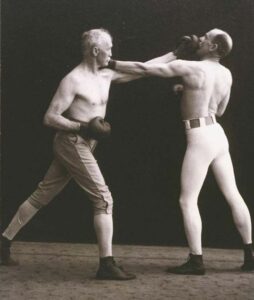
Instructs Boxing – c.1910
Boxing, it is said and is widely known, will break your heart. Sometimes you win. Sometimes you lose. Sometimes when you win, you’re actually losing. Not often, but sometimes, when we lose, we’re just beginning to win.
One day you’re a hardworking, God-fearing, fiercely nationalistic Irishman who can neither overthrow your British oppressors nor pay your rent.
The next day, you’re a land-owning tradesman, well loved by family and community, living comfortably, bountifully, gratefully in a brand new world.
One day you’re a pauper, a misfit, an orphan, a fool or a bastard. The next day, a hero. A god among men.
One day, you’re a nobody from the middle of nowhere. The next day, you’re champion of the world.
Family, faith, freedom, and glory — this is why Mike and Tommy Gibbons fight.
